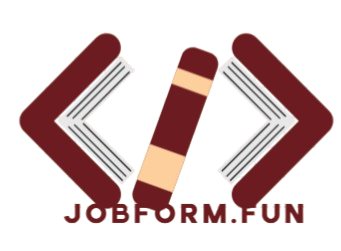Understanding the Basics of Programming
Programming, at its core, is the process of creating a set of instructions that a computer can execute to perform specific tasks. This practice is foundational to the field of computer science and is essential in today’s increasingly digital world. By learning programming, individuals can build applications, analyze data, and automate processes, making it a highly valuable skill in various industries.
One of the first steps in the programming journey is choosing a programming language. There are numerous languages available, each designed for different applications and varying in complexity. Popular programming languages include Python, JavaScript, Java, and C++. Each language has its own syntax and use cases, which can range from web development to data analysis and artificial intelligence. Selecting the right language depends on the learner’s goals and interests, as well as the type of projects they aspire to undertake.
To build a solid programming foundation, it is crucial to understand key programming concepts. Variables, for instance, are named storage locations in memory that hold data. This data can be of various types, referred to as data types, including integers, floats, and strings. Learning about syntax, which dictates the rules and structure of a programming language, is equally important, as it ensures the code is written correctly and understood by the computer.
Moreover, logic plays a vital role in programming. It allows programmers to control the flow of a program using conditional statements and loops. As learners advance, they will encounter more complex terms and techniques, but starting with a strong grasp of these fundamental concepts will provide them with a robust framework for their programming skills. In essence, a structured approach to learning programming not only enhances one’s capabilities but also prepares individuals for a multitude of opportunities in the digital landscape.
Choosing the Right Programming Language
In the realm of programming, selecting the appropriate language is crucial for aligning your goals and interests with your learning experience. Each programming language has its own strengths and weaknesses that can serve different purposes, depending on the projects you aim to undertake. Among the most popular programming languages are Python, Java, JavaScript, and C++. Understanding the core applications and advantages of each can significantly assist in your decision-making process.
Python, often praised for its readability and simplicity, is ideal for beginners. It boasts a robust standard library and an extensive ecosystem of frameworks that make it suitable for web development, data analysis, artificial intelligence, and more. Its versatile nature allows for quick prototyping and development, catering to a wide variety of projects. As such, those seeking a language that can grow with them as they tackle increasingly complex tasks may find Python particularly appealing.
Java is another strong contender that has been a staple for many years, especially in enterprise environments. Known for its portability across different platforms, Java is often the language of choice for large-scale applications and Android development. Its object-oriented structure encourages reusable code, which is beneficial in managing extensive projects. However, Java can be more verbose compared to Python, potentially posing a steep learning curve for new programmers.
JavaScript stands out as the foundational language for web development. As the primary language of the browser, JavaScript enables developers to create interactive and dynamic web applications. With the advent of frameworks like React and Node.js, JavaScript has extended its functionality beyond the front end, making it an essential tool for full-stack developers. However, its asynchronous nature and reliance on the browser environment can add complexity for newcomers.
Lastly, C++ is favored in performance-critical applications, such as game development and systems programming. It provides a high degree of control over system resources while facilitating complex operations. However, this power comes at the cost of complexity, making C++ less accessible to beginners compared to other options.
Ultimately, the right programming language for you will depend on your personal interests and career aspirations. By considering the specific applications and strengths of each language, you can better align your learning journey with the projects you are passionate about pursuing.
Structured Learning Approach: Courses and Resources
Embarking on the journey of learning programming from scratch requires a well-organized and systematic approach. A structured learning path not only aids in grasping fundamental concepts but also ensures that learners build upon their knowledge effectively as they advance towards more complex topics. Various online platforms have emerged to facilitate this structured methodology, offering a variety of programming courses tailored to different skill levels.
Online platforms such as Codecademy, Udemy, and freeCodeCamp provide comprehensive programming courses, covering everything from fundamental programming concepts to advanced coding techniques. Codecademy features interactive tutorials that allow learners to practice coding in real-time, reinforcing theoretical knowledge with practical application. In contrast, Udemy hosts a vast library of courses taught by industry professionals, enabling learners to choose subjects that align with their specific interests and goals.
Moreover, freeCodeCamp offers a unique blend of self-paced learning with hands-on challenges, allowing learners to apply their skills through real-world projects. This practice-oriented approach not only solidifies understanding but also enhances employability by building a portfolio of work. As learners navigate these platforms, it is crucial to establish clear learning milestones to track progress and maintain motivation.
In addition to the courses, incorporating supplemental resources such as textbooks, online forums, and coding bootcamps can significantly enrich the learning experience. Textbooks often provide in-depth explanations and theoretical foundations that complement the interactive nature of online courses. Engaging with online communities, such as Stack Overflow or Reddit’s programming subreddits, enables learners to seek assistance, share insights, and even collaborate on projects. Coding bootcamps can serve as an intensive alternative, immersing learners in a fast-paced environment to cultivate their skills rapidly.
By following a structured curriculum and utilizing a diverse array of resources, aspiring programmers can achieve proficiency and confidence in their coding abilities, setting the stage for successful careers in tech fields.
Hands-On Practice: Building Projects and Solving Problems
Engaging in hands-on practice is paramount when learning programming from scratch. Theoretical knowledge serves as the foundation; however, applying that knowledge is what truly solidifies understanding and enhances coding skills. Building real-world projects allows learners to put their programming abilities to the test while also encouraging critical thinking and creativity. Students can start with simple projects, such as a personal portfolio website or a basic calculator, and progressively advance to developing complex applications or systems as their skills improve.
In addition to personal projects, solving coding challenges is an effective way to improve proficiency. Platforms like LeetCode and HackerRank offer a plethora of problems to tackle, ranging from beginner to advanced levels. These challenges not only help in mastering algorithms and data structures, but they also prepare learners for technical interviews. Participating in coding competitions can further enhance problem-solving abilities and foster a spirit of healthy competition among peers.
Utilizing resources like GitHub repositories can be immensely beneficial as well. Exploring open-source projects enables learners to understand the structure of real-world applications and contribute to ongoing projects. This collaboration enhances coding skills and provides exposure to different coding styles and best practices. Debugging and testing are crucial components of software development; hence, acquiring these skills is essential for future projects. Familiarizing oneself with debugging tools and methodologies can mitigate common coding issues that arise during development.
Incorporating these hands-on practices—building projects, solving coding challenges, and collaborating with others—creates a comprehensive learning experience. By actively engaging with programming tasks, learners can deepen their understanding and gain confidence in their abilities, paving the way for a successful career in technology. Ultimately, practical experience is not just about writing code; it encompasses creativity, collaboration, and continuous learning, all vital for mastering programming.


No responses yet